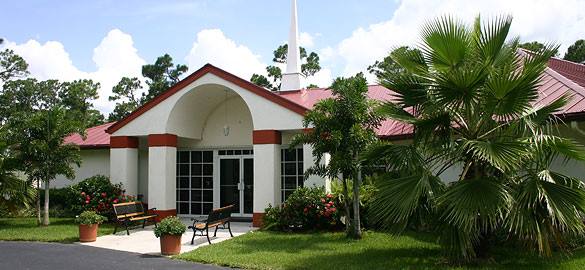
I Am Jonah
In the end, my only hope is that Jesus is always the initiator of mercy. He pursues me, even when I am unfaithful.
As a little girl, I learned that there was a prophet named Jonah that God rescued by sending a great fish to swallow him and carry him safely to land. As an adult, I learned that Jonah was, basically, a jerk who chose to run away from God rather than go and preach to his enemies, because he knew that God was going to have mercy on them and he didn’t want any part of that. Today, I learned that I am Jonah.
Read the rest at
Watch Party - Presidents Equip Conference
Apparently, Registration is closed.
you are will welcome to join us.
Watch Party at Grace
Thursday 10Am -Noon
Friday & Saturday 9Am - Noon
Albany man rescued from Lake George by priests on a floating tiki bar
"How funny is it that I've been sober for seven years and I get saved by a tiki bar?" MacDonald laughed.
LAKE GEORGE - It was a choppy afternoon on the lake and Jimmy MacDonald from Albany was paddling in a kayak.
As MacDonald tells it, he drifted away from his wife and step kids because he was taking pictures with his new smartphone "and not really paying attention."
As he tried to make his way back, the water got choppier, and he paddled harder before he tipped over and lost his paddle.
He was in about 30 feet of water, his ill-fitting life jacket coming up over his head, and he was holding onto the kayak with one hand and his new $1,400 smartphone with the other.
He says people -- other kayakers and canoeists -- were passing by in the distance, but the former amateur boxer's pride wouldn't let him scream for help. So for several exhausting minutes he kept trying to right the kayak.
"That's when I said, 'Alright, I think I might die today. I think this might be it.' I prayed to my lord and savior Jesus Christ for help," MacDonald said.
Greg Barrett is a captain for Tiki Tours.
"A lot of things aligned that day," Barrett said.
He typically pilots partiers, but not on this day.
Repurpose an Old IPad
Donate Old Ipad
You can help us support patients in hospitals who have COVID-19. Donate your old IPad to help our groups in hospital!
ICTR (International Collaborative for Trauma and Resilience) is supporting the mental health of patients in hospitals who have COVID-19 by facilitating virtual group meetings.
The idea may be seeming simple, a group that takes place twice weekly for 50 minutes, but the outcomes speak volumes.
These groups support health recovery and aid in reducing isolation, increasing resilience for patients through contact, sharing, laughter and companionship.
One of greatest challenges being a not for profit is always funding but in this case the challenge is more personal in that not all patients are fortunate to have access to iPads.
So, we are appealing to the public to please help these patients and donate an iPad (an older one you may no longer use) to our effort. Your donation will help us to better the lives that have already suffered so much, by giving them access to behavioral health and breaking their isolation.
In order to donate the iPads please email drraz@theictr.org. We will contact you back and send you instructions.
Website: https://theictr.org/
Contact Information: Dr. Sherrie Raz
Email: drraz@theictr.org
Mail Address: 10800 Avenida Del Rio, Delray Beach, FL, 33446
Cell: (561)703-4468
[Bible Study] 1st Commandment Zoom to Scripture
[Bible Study] 1st Commandment Zoom to Scripture
Who Is My Neighbors - John Nunes
Humans are able, by grace through faith, to uniquely know and love their Creator. Therefore, we regard all persons as our neighbours—without any exclusions or exceptions! We value all persons as bearers of the dignity accredited to those both made in the image of God, and, in whom, as believers in Christ, the image will be fully restored.
“11 min Read”
By Rev. Dr. John Arthur Nunes is President of Concordia College (Bronxville, New York).
As if the loneliness of isolation weren’t enough, now we are gripped by the fear of anarchy and what feels to some like the collapse of western civilization. As tough as these times seem, I believe that the Holy Spirit relentlessly is present to help the Church navigate with confidence and hope these difficult days: “We are not of those who shrink back and are destroyed, but of those who have faith and preserve their souls” (Hebrews 10:39).
The twin crises of COVID-19 and rising mainstream awareness of racial injustice have tested our faith and rattled our settled ideas of normalcy. From Port of Spain, Trinidad to Uranium City, Saskatchewan life on our continent is challenged. Yes, I say stretching from the Caribbean, because people from Panama to Greenland geographically-speaking are our North American “neighbours.” Our current moment—whether because of social distancing or social unrest—retrieves for us an ancient question with biblical precedent: “Who is my neighbour?” (Luke 10).
Reimagining Neighbourliness
When I attended Concordia Lutheran Theological Seminary (CLTS – St. Catharines, Ontario) in the late 1980s, Dean Roger Humann led a spiritual retreat based on Dietrich Bonhoeffer’s work Life Together. How can communities of faith ground our lives together in the place where grace is funded? Humann proposed, only with Christ at the centre! I remember our discussions including this volume’s cautionary note: that there was a destructive power when humans wrongly love even good things. For example, lovers of community, and nowadays, lovers even of diversity end up destroying what they love. Those, on the other hand, who reserve their love for Jesus Christ fortify community.
That principle has stuck with me and worked for me everywhere I’ve been in the ensuing thirty-plus years. Truth endures, doesn’t it? My point is, as we ourselves endure our hard struggles (Hebrews 10:32), we do not need novel strategies; we do need to do old things in new ways, and answer ancient questions, like “Who is my neighbor?” with faithful reimagination.
Our renewed neighbourliness arises only as we continue to orbit our lives around the source and summit of our faith, Jesus Christ. He is the axis that holds all things together (Colossians 1:17). Through the inevitable zigzag course of our days, we hold firmly to the One who holds us in “the confession of our hope without wavering” (Hebrews 10:23). How do we keep being held? By participating regularly in God’s Word, in the Sacraments, and in the fellowship of the faithful. By dwelling in Christ, we will reinforce our habits of faith during these trying times even as we discover innovative ways to be forces for good and for God in increasingly diversified communities. To be the witnesses for peace and the workers for justice we are called to be, we must first “live and move and have our being” (Acts 17:28) in the One who calls us.
Since human persons are the crown of creation, all people are offered the saving gift that Jesus Christ lived, died, and rose to procure. Humans are able, by grace through faith, to uniquely know and love their Creator. Therefore, we regard all persons as our neighbours—without any exclusions or exceptions! We value all persons as bearers of the dignity accredited to those both made in the image of God, and, in whom, as believers in Christ, the image will be fully restored. Finally, we anticipate the renewal of creation, the healing of the nations (Revelation 22:2), where race is finally and fully transcended.
“Humans are able, by grace through faith, to uniquely know and love their Creator. Therefore, we regard all persons as our neighbours—without any exclusions or exceptions! We value all persons as bearers of the dignity accredited to those both made in the image of God, and, in whom, as believers in Christ, the image will be fully restored.”
North American society seems to be moving in the opposite direction, as we increasingly dishonour, disregard, and disrespect our neighbours with blatant brutality. Social media tends to aggravate our rage and outrageousness. Stuck in a painful state of hyperpartisanship, we demonize each other and impose demands that are non-nuanced and non-negotiable. As religious faith fades, politics gains an inflated sense of religious ferocity. Even among those who profess belief, theology too often gets twisted to form a thin veneer of proof passages as cover for their group’s cultural ideology. We are meant for more than this as a people and as a Church. If we still possess the will to pursue a pathway forward, it will need to include a new neighbourliness led by Christians: respectful listening, principled civility, reasoned dialogue, mutual sacrifice, decision-making with an eye toward the common good, and as James Hankins from Harvard University puts it much better than I: “the ability to recognize the value of what others value.”
I palpably remember as a student how proudly I admired the neighbourliness expressed in the old CLTS Academic Calendar. I was magnetized by what these words suggested as possible: that St. Catharines was located near the urban centers of Toronto, Hamilton, and Buffalo, New York, and that the area congregations were reflective of “the ethnic and linguistic diversity that is typically Canadian.” What a bracing vision, to celebrate pluralism as “typical,” an indubitable fact.
Race as Fiction. Racism as Fact.
The most recent racial unrest in the United States has captured the attention of the mainstream culture in North American life, a stratum in which most Lutherans are located. Many are becoming more aware of what others have long known—the persistence of the structural evil of slavery, Jim Crow segregation, and the chronic lack of access afforded too many African-Americans. Many are recognizing the gargantuan work yet to be done in addressing systemic corruption, unequal economic opportunity, urban violence, mass incarceration, and the treatment of minority neighbours.
“It has always struck me as ironic that the majority of the world’s population qualifies as “minority.” Obviously, this term refers more to power dynamics than numerical demographics.”
There may be similar opportunities in Canada among so-called minorities. I say “so-called” because Black, Indigenous, and People of Colour (BIPOC) comprise the vast majority of the world’s 7.8 billion people—conservatively 80 percent. The proportion of “minorities” in the U.S. and Canada will only grow as time goes on. Pew Research already reports that the most common age for white people in the United States today is 58, while for “minorities” it is 27.
It has always struck me as ironic that the majority of the world’s population qualifies as “minority.” Obviously, this term refers more to power dynamics than numerical demographics. Because of this, I have an academic friend who uses the term minoritized rather than minority. He is referring to groups of people who have been assigned minority status. What makes this more ironic for Christians is that race is a theological and biological fiction. Genetic differences are as significant within so-called races as they are between so-called races. Yet, racism is a fact. Racism makes negative judgments about human worth, intelligence, or superiority based on phenotypes, that is, “organic, genetically transmitted differences (whether real or imagined) between human groups” (LCMS CTCR report on “Racism and the Church”).
Shattering Stereotypes
One opportunity for Christians in Canada to engage in the work of social justice and evangelization is among our First Nations’ neighbours. The word “neighbour” derives historically from near-dweller; to be a neighbour requires proximity, getting close to others in order to get to know them. Social distancing is the opposite of neighbouring.
Rhonda Kelman is the Executive Director of BC Mission Boat Society. She described for me in a recent Zoom conversation what could be acquired only from getting close to those who are different. Her “stereotypes were shattered” through her work among First Nations peoples living in remote communities along Canada’s British Columbian coast. As she shares the love of Jesus in word and deed, she “listens and learns,” and is awakened to the many false assumptions that people have regarding the religious practices of these communities. “It’s not about animal worship,” Kelman maintains, “I’ve heard [First Nations] people ask, ‘How can I have my culture and Jesus at the same time?’”
In other words, how are we to understand the ways in which culture and Christianity intersect? While becoming Christian certainly implies entering into a reverential framework that is distinct from this world, it also always entails cultural forms that are of this world—like language, music, ways of relating to one another, and even notions about time. During this moment of rising intercultural consciousness, we have a chance to learn about our own cultural blind-spots that falsely blur culture and theology. No matter who we are, our way cannot be the only way to come to the only One who is the Way, the Truth, and the Life (John 1:14).
Kelman speaks glowingly about experiencing welcome and hospitality among her First Nations neighbours. “I am amazed that we are invited and asked to go into their communities, especially in light of what they have suffered from church-based Residential Schools: sexually, physically, emotionally, having everything stripped away from them, not even being allowed to use their language.”
It is heartbreaking that Inuit people, for example, have experienced intergeneration trauma which contributes to the highest suicide rates in the world, as Helen Epstein writes in The New York Review of Books, and that in some communities “over half the population uses drugs… including anything sniffable: starter fluid, spray paint, nails polish and gasoline.” Who is my neighbour?
Three Splashes of Inclusion
Irrespective of your politics, Canada seems historically to have striven to be a place of welcome and inclusion. As the former president of Lutheran World Relief, I had the opportunity to travel the world, meeting and getting to know many global neighbours, especially those living in poverty. As a whole, Canada seems unique in valuing hospitality toward new neighbours. My family was blessed to be welcomed to Canada from Jamaica in the 1960s, and then to Pilgrim, Hamilton in the early 1970s.
Sadly, some of this spirit seems to be dissipating. Perhaps this is in reaction to the ideological pressures of aggressive progressives. Perhaps it’s due to the nostalgic streak among some conservative types pining for a mythical era of monochromatic simplicity. Perhaps it’s an unhealthy influence from your politically divided neighbours to the south.
Whatever the socio-political motive, our identity in Christ’s mystical body must transcend categorization. As baptized believers, we are new creations! And that matters more than any label. Likewise, we have a new view of our neighbours, seeing them not merely as labelable categories. Reborn, “we regard no one according to the flesh” (2 Corinthians 5:16). What God does for us in three splashes of water obliterates all distinctions. Who we are daily remade to be in the name of Father, Son, and Spirit outweighs any category like Métis, fundamentalist, racist, single-parent, Quebecois, steelworker, Latina, divorcee, Marxist, bishop, learning-disabled, or any of the pigeonholes in which we find ourselves placed. We are called into the world from that eternal-life-giving font by the perfect love that drives out fear (1 John 4:18).
Despite what feels these days like chaos and crisis, the Holy Spirit keeps our eyes riveted on Jesus Christ. The ordinary places in which we pray, play, live, love, and work comprise the neighbourhoods in which God has assigned us to live out our baptismal identities. We follow our Redeemer and Rabbi who was, as my former professor Rev. Dr. John R. Stephenson eloquently puts it, “the carpenter’s son, becoming not a garrulous member of the chattering classes, not a businessman in search of quick profit, not even mayor of the town, but a quiet, methodical, reliable carpenter alert to the needs of His neighbours.”
Forgiveness Forty-Eight Years After John Lewis Was Attacked
love that opens its arms to help heal the pain of another’s suffering — not violence in self-defense — has the power to ultimately disarm the attacker, preserve his or her integrity, and enable the truth to do its work.
Source Article: https://mbird.com/2020/07/forty-eight-years-after-john-lewis-was-attacked/
Astop-you-in-your-tracks story of (and reflection upon) sin, repentance, reconciliation, and hope from the late congressman John Lewis’ final book, Across That Bridge: A Vision for Change and the Future of America, which we discuss on the forthcoming episode of The Mockingcast. Even if you’ve heard about the incident elsewhere, it’s worth reading Lewis’ own words on the matter:
Diffusing the fury of violence by obstructing and redirecting the intention of an attacker is itself an act of love … Having compassion for your attacker means you harbor no malice and seek no retribution for the wrong that has been done. It is an offering of love that asserts the victim’s self-worth. It makes room for the inner working of his or her soul that has a way of invoking a quiet insistence to do what is right.
This brings to mind the one and only attacker, of the forty times I was arrested and jailed, who apologized to me for his actions. Almost forty-eight years after that now famous Freedom Ride stop in Rock Hill, South Carolina, that left Albert Bigelow and me so badly bruised and bloodied, Elwin Wilson, one of our attackers, wanted to come to meet me.
Wilson had apologized to other Freedom Riders during ceremonies honoring them in South Carolina and had mentioned his wish to find the men he had beaten up that day in Rock Hill. I welcomed him to Washington and as we sat, Wilson looked deep into my eyes, searching my expression, and said he was the person who had beaten me in Rock Hill in May of 1961. He said, “I am sorry about what I did that day. Will you forgive me?” Without a moment of hesitation, I looked back at him and said, “I accept your apology.” The man who had physically and verbally assaulted me was now seeking my approval. This was a great testament to the power of love to overcome hatred …
Wilson has said publicly that he is glad to be able to count me as a friend today, and he has expressly mentioned his gratitude that we did not press charges that day. His life and the life of his family could have been changed forever if South Carolina had actually tried and convicted him. But beyond that, had he been tried, it would have added a layer of justification to the rationalization that always accompanies guilt. If he had been publicly vindicated, which would have been the likely outcome, it would have been more difficult for him to come to the point where he eventually believed an apology was in order, and more difficult for him to feel love.
Elwin Wilson also said that he was glad we did not have any weapons that day. If Albert Bigelow and I had inflicted harm in Rock Hill, we would have fueled the flames of violence instead of putting them out. Any sense of remorse would have had to compete with the fire of anger. Instead of a possible reconciliation, revenge would have been the product of that violent confrontation in Rock Hill. But because we met this man in love and offered him our respect despite his obvious hatred, it gave him nothing to justify his anger. He left that day only to review it in his mind so many times over the years. The resonance of our innocence made room in his own soul for the realization that he needed to ask for forgiveness. I was surprised to hear him clearly restate forty-eight years later the essence of what I had said to the police officer as I declined to press charges almost half a century earlier: “We’re not here to cause trouble. We’re here so that people will love each other.” That was how he put it. The impact we left was undeniable.
What Elwin Wilson did took courage. He could have simply made amends in his heart, but to publicly put aside his differences and admit his error is unique and bold. By doing this, he demonstrated so poignantly for all to see that love that opens its arms to help heal the pain of another’s suffering — not violence in self-defense — has the power to ultimately disarm the attacker, preserve his or her integrity, and enable the truth to do its work. Love that meets the separating action of violence with forgiveness affirms that our ultimate and eternal unity is transformative.

![[Bible Study] Jonah 3 Zoom to Scripture](https://images.squarespace-cdn.com/content/v1/5852f18a20099e30cd2c01dc/1602258540333-0OMTFK3Y4X1LRMU75R52/Zoom+to+Scripture+%2816%29.jpg)








































![[Bible Study] Jonah 1 + 2 Zoom to Scripture](https://images.squarespace-cdn.com/content/v1/5852f18a20099e30cd2c01dc/1602258656606-NN12A9KF69MJDPFGBLHO/Zoom+to+Scripture+%2814%29.jpg)













![[Bible Study] 9,10 Commandment Zoom to Scripture](https://images.squarespace-cdn.com/content/v1/5852f18a20099e30cd2c01dc/1600533351534-GLHVG9NGC2RZA5CZ9ORT/Zoom+to+Scripture+%2812%29.jpg)




![[Bible Study] 8 Commandment Zoom to Scripture](https://images.squarespace-cdn.com/content/v1/5852f18a20099e30cd2c01dc/1599922976212-LDDBO2IT4TVMG5QDJHBI/Zoom+to+Scripture+%2810%29.jpg)

![[Bible Study] 567 Commandment Zoom to Scripture](https://images.squarespace-cdn.com/content/v1/5852f18a20099e30cd2c01dc/1599319415202-ZBVOTUIP5G8Y0EUBLZMK/Zoom+to+Scripture+%287%29.jpg)


![[Bible Study] 4 Commandment Zoom to Scripture](https://images.squarespace-cdn.com/content/v1/5852f18a20099e30cd2c01dc/1599317170372-D9G66PLW2OW749UHC9N3/Zoom+to+Scripture+%285%29.jpg)










































![[Bible Study] 2nd & 3rd Commandment Zoom to Scripture](https://images.squarespace-cdn.com/content/v1/5852f18a20099e30cd2c01dc/1598706968732-OFU0RW5LARS5L3SLG1NG/Zoom+to+Scripture.png)

![[Bible Study] 1st Commandment Zoom to Scripture](https://images.squarespace-cdn.com/content/v1/5852f18a20099e30cd2c01dc/1597410385809-WPKGJF02GM9CIDE8AS0Z/Zoom+to+Scripture+%281%29.jpg)

![Nunes-Quote-1536x936[1].jpg](https://images.squarespace-cdn.com/content/v1/5852f18a20099e30cd2c01dc/1596898959281-AKQVP9DYM0IY0121DSW9/Nunes-Quote-1536x936%5B1%5D.jpg)
![Nunes-Quote-2-1536x936[1].jpg](https://images.squarespace-cdn.com/content/v1/5852f18a20099e30cd2c01dc/1596899241866-3H2I44UYS74M0H85KABF/Nunes-Quote-2-1536x936%5B1%5D.jpg)

![rockhill-1024x535[1].png](https://images.squarespace-cdn.com/content/v1/5852f18a20099e30cd2c01dc/1596574905772-8OIIS8I5C28FDSBAB93T/rockhill-1024x535%5B1%5D.png)
![41ZgQWr1zkL._SX355_BO1204203200_[1].jpg](https://images.squarespace-cdn.com/content/v1/5852f18a20099e30cd2c01dc/1596575031427-B6Y41B7JTE71BLSA7CN5/41ZgQWr1zkL._SX355_BO1204203200_%5B1%5D.jpg)